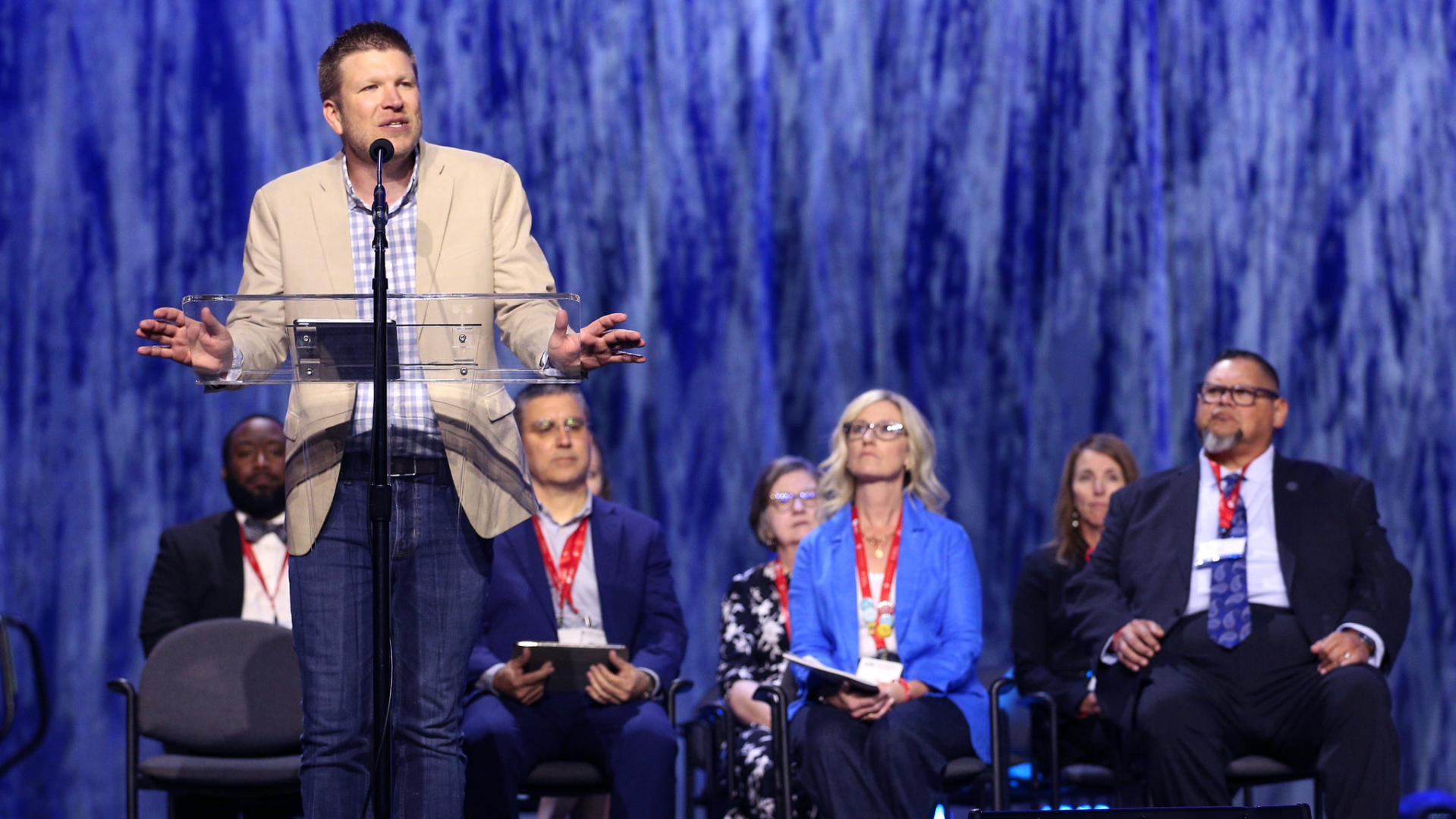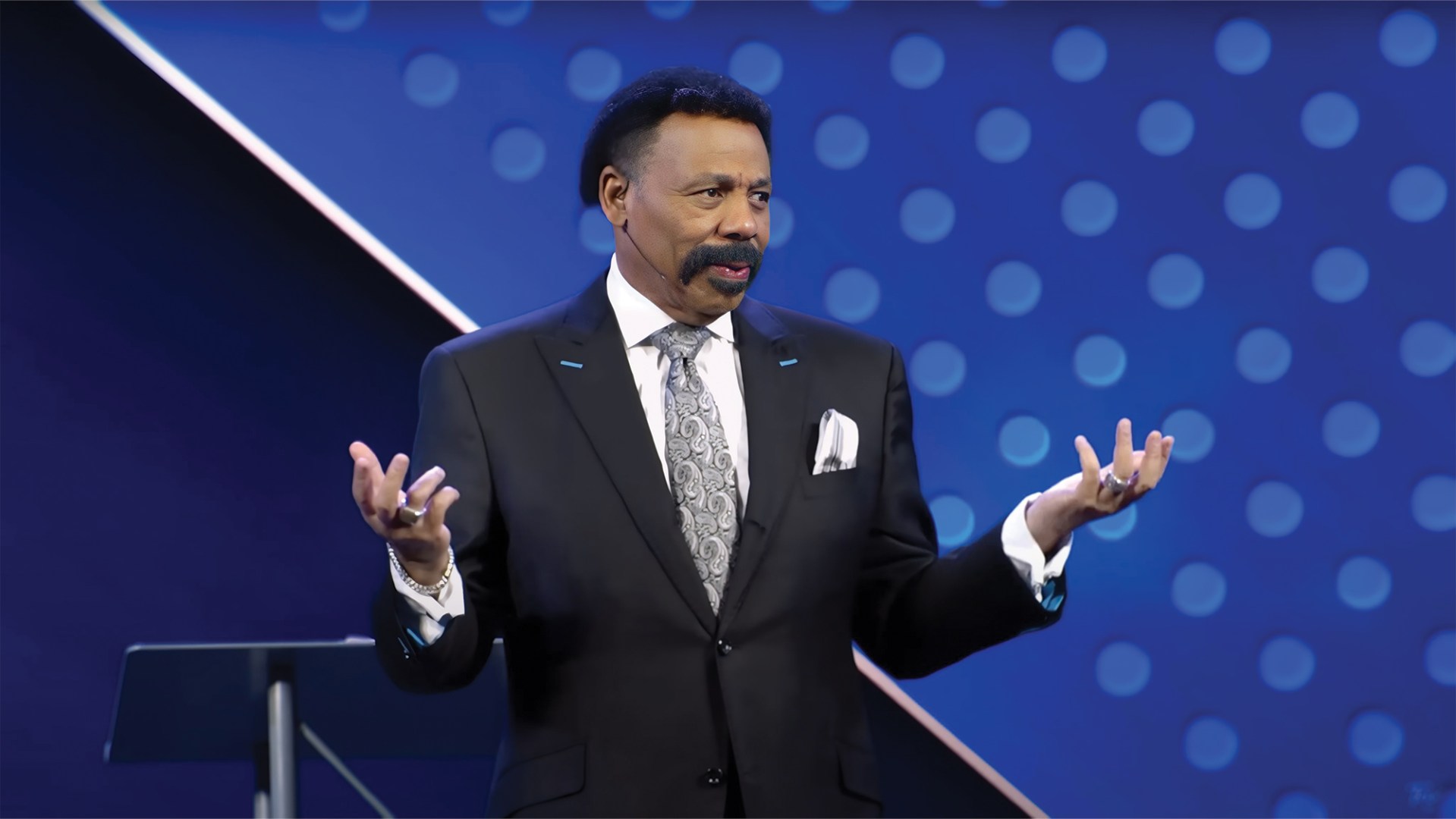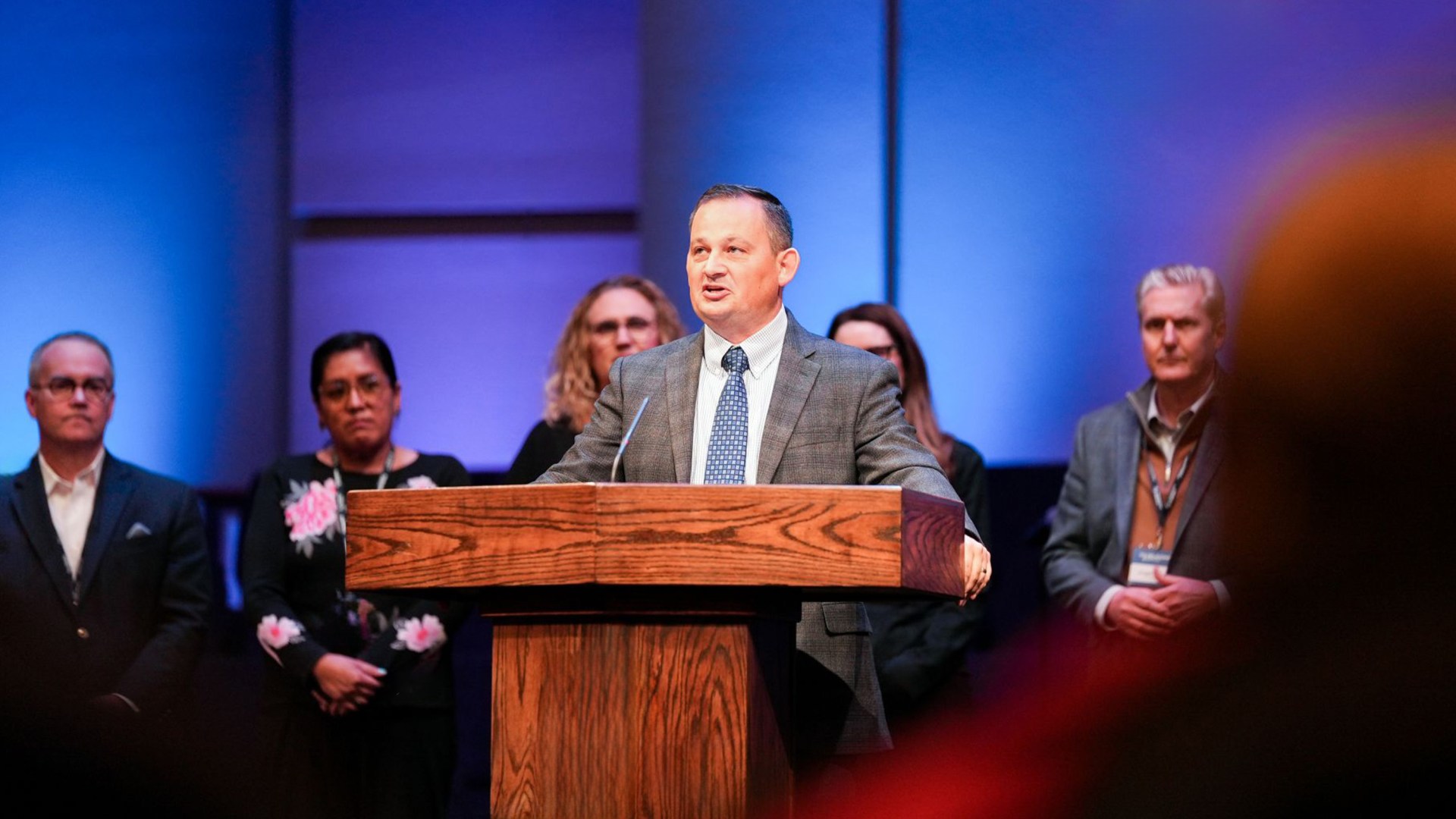In the weeks before the Southern Baptist Convention (SBC) annual meeting, newly elected president Clint Pressley finished reading Malcom Gladwell’s book on precision bombing in World War II, Erik Larson’s bestseller set in the lead-up to the Civil War, and a history of a 19th-century mutiny on a Royal Navy vessel.
A few years ago, these stories could have been a metaphor for the convention. Back then, an even more conservative wing had emerged with literal pirate flags and a rallying cry of “take the ship,” and the previous few presidential races pitted a Conservative Baptist Network (CBN) candidate against a more traditionalist nominee.
But the 2024 slate wasn’t split between two factions. Southern Baptists decided among six presidential candidates and took a historic three rounds of voting to elect Pressley—a sign of the ranging positions and priorities among the country’s largest Protestant denomination.
Pressley, a sharp-dressed 55-year-old North Carolina pastor, steps into the presidential role knowing the challenge of finding consensus among today’s Southern Baptist leaders from autonomous churches, who sometimes clash with each other on ministry styles, theology, or the work of the convention—and whose clashes are increasingly on display online.
He didn’t refer to the presidency as a battle to win but as a chance to dampen divisions and bring unity.
“As a convention, we want to be unified around not only our understanding of the Bible and love for the Bible, love for the gospel, and love for the mission. We’re unified around the Baptist Faith and Message that we affirm,” Pressley said. “There’s a lot that we can really be glad of.”
The biggest piece of business for Southern Baptists this year was a proposal to add a constitutional requirement that SBC churches name only men as “any kind of pastor.” A majority were in favor—61 percent—but the vote fell short of the two-thirds threshold needed to add it to the SBC’s governing document.
While Southern Baptists remain complementarian, they’ve taken nuanced positions on this particular move to restate their position in their constitution. They disagreed on whether to support the amendment, the rationale for doing so, and the importance of the vote at all.
Arguments for and against swirled online in recent months and at auxiliary events during the week of the annual meeting itself, held by groups like the Center for Baptist Leadership, The Danbury Institute, Founders Ministries, Baptist21, 9Marks, and The Baptist Review.
Jared Cornutt, a founder of The Baptist Review, said these networks can be helpful for fellowship and friendship within the convention. But they also risk fostering an echo chamber or a sense of tribalism.
“There are so many groups,” said Cornutt, who pastors a church in Birmingham. “We’re really seeing how diverse and divided we are.”
Pressley, lead pastor of Hickory Grove Baptist Church outside Charlotte and a council member for the Council on Biblical Manhood and Womanhood, had taken a stance in favor of the amendment, saying it “makes sense” with what he sees the Bible and the Baptist Faith and Message affirm about ministry roles.
But he also saw it as a move for clarity, not a response to a significant egalitarian presence in the SBC. Before the vote, Pressley said that, either way, “we’re going to have to be OK … and keep moving forward with the mission and what we do as a complementarian convention.”
The convention has held to that stance for affiliated churches without an explicit mention in the constitution. Last year, the SBC deemed Saddleback Church “not in friendly cooperation” with the convention over its female preaching pastors; this year, it did the same for a Virginia church that espoused egalitarian beliefs.
The SBC’s Ethics and Religious Liberty Commission was applauded for its work on behalf of life and religious liberty, even though a failed motion to dissolve the entity garnered votes from a sizable minority.
From the convention stage and in related events, leaders acknowledged the disagreements among Southern Baptists but urged them to recognize their shared beliefs in Scripture, complementarianism, and evangelization, especially against a society moving further away from those convictions.
“Your enemy is not in this room,” charged pastor Dean Inserra in the convention sermon, lamenting that denominational infighting can hinder their gospel work.
Pressley has a solid conservative background and a history of involvement in Southern Baptist life. He was elected as the first vice president of the convention a decade ago, serving alongside former president Ronnie Floyd.
He currently holds a position on the board of trustees for The Southern Baptist Theological Seminary—Pressley said its president, Albert Mohler, would be his first call in a time of crisis. He is pursuing a doctorate from Southern and holds a master’s from New Orleans Baptist Theological Seminary.
Fellow North Carolina pastor Chris Justice, who nominated Pressley, said he “operates with a joyful orthodoxy, which will be a blessing for the SBC.”
Pressley came to faith as a teen and attended Hickory Grove before going on to serve on staff. After pastoring churches in Mississippi and Alabama, he returned as Hickory Grove’s senior pastor in 2010.
His church recently reported a volunteer to police over abuse allegations and disclosed the situation to the congregation. This week, he thanked the SBC’s Abuse Reform Implementation Task Force for its resources on addressing abuse. “We would not have known what to do had this not come up. So there’s some very real and tangible results that have already happened.”
Speaking after the annual meeting concluded on Wednesday evening, Pressley said it was a “strange honor” to have won the election, but “with all that’s going on in our convention,” he felt like now was his time to run.
“Part of the president’s job,” he said, “is to do all you can by way of influence to make sure that, as a convention of churches, we are focused on what our mission is.”








































